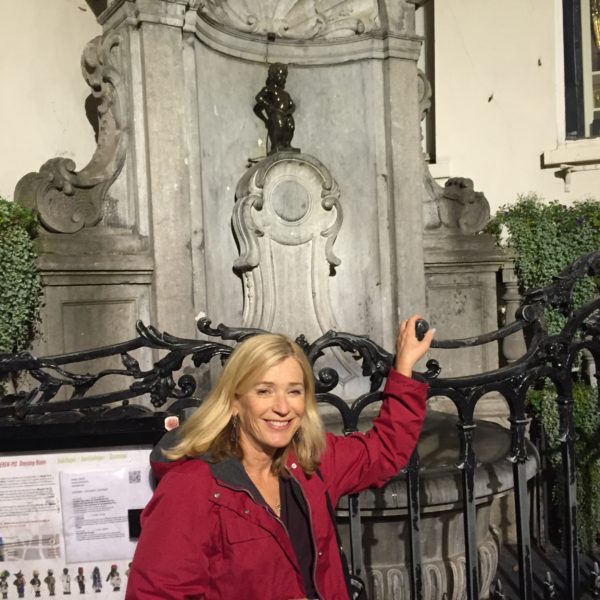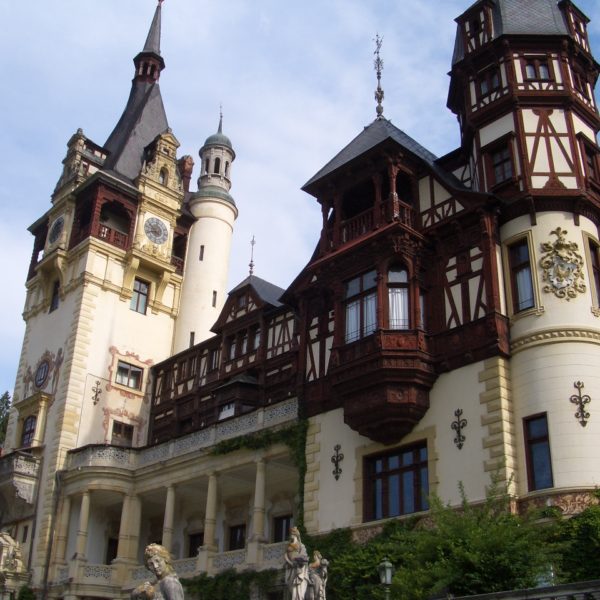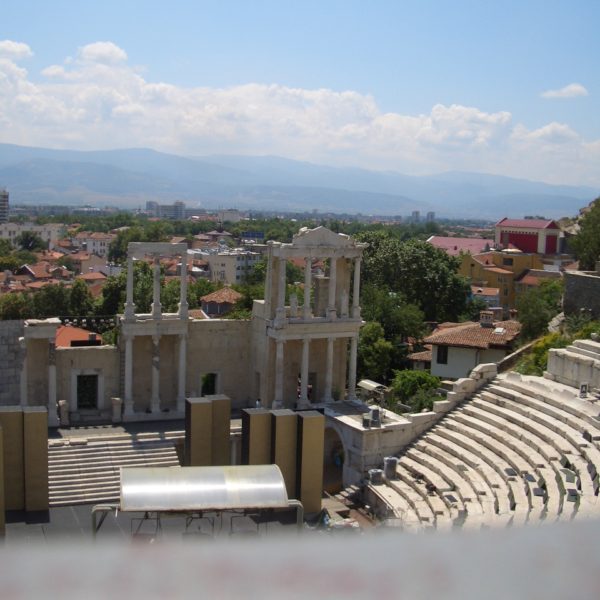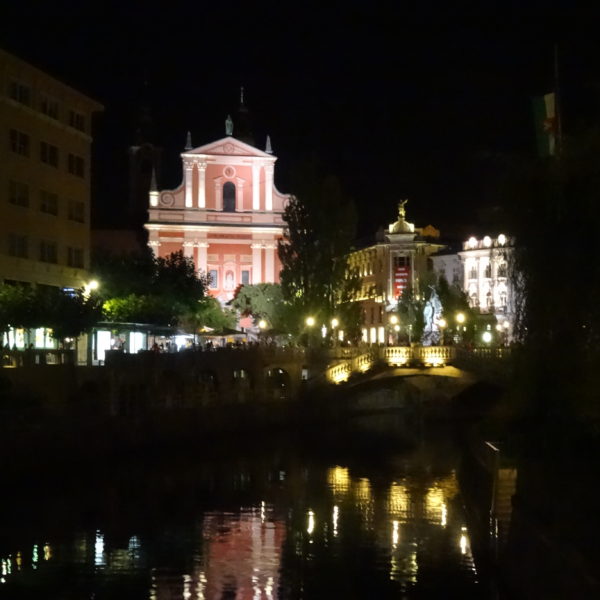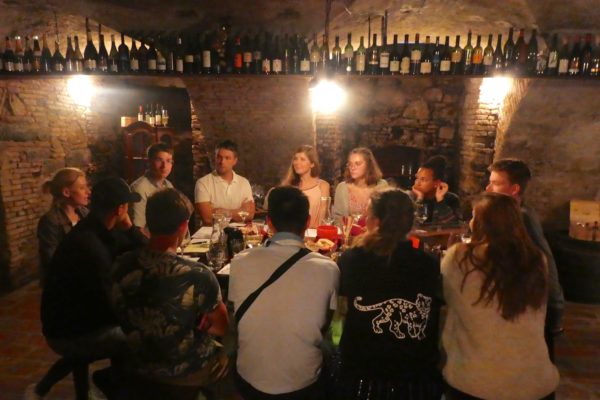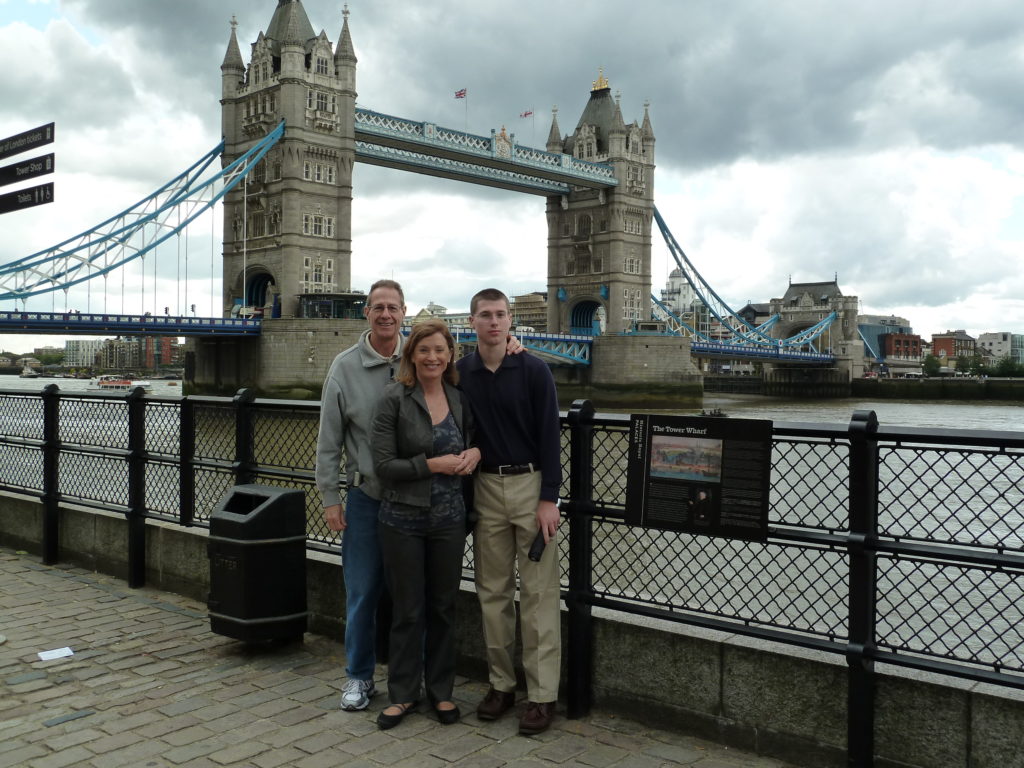

Congratulations, you’ve just booked that super cheap flight to Europe. But then… London. Or Manchester. Or Paris. Or Barcelona. Or some other scary headline that makes you rethink your travel plans. Here’s why you should go anyway, and some simple things you can do to enhance your personal safety while traveling.
First, let me say how saddened I am to be writing this post about Europe. I’ve travelled under US State Department protection in Pakistan, and also blogged about staying safe in destinations like Egypt and Jordan. Basically, I advocate taking a middle ground between a large tour bus (a possible target) and going it alone. A personal driver or small group/family tour will put you under the watch of locals who know where to go — and not go. It’s what this blog — the kindness of Strangers — is all about.
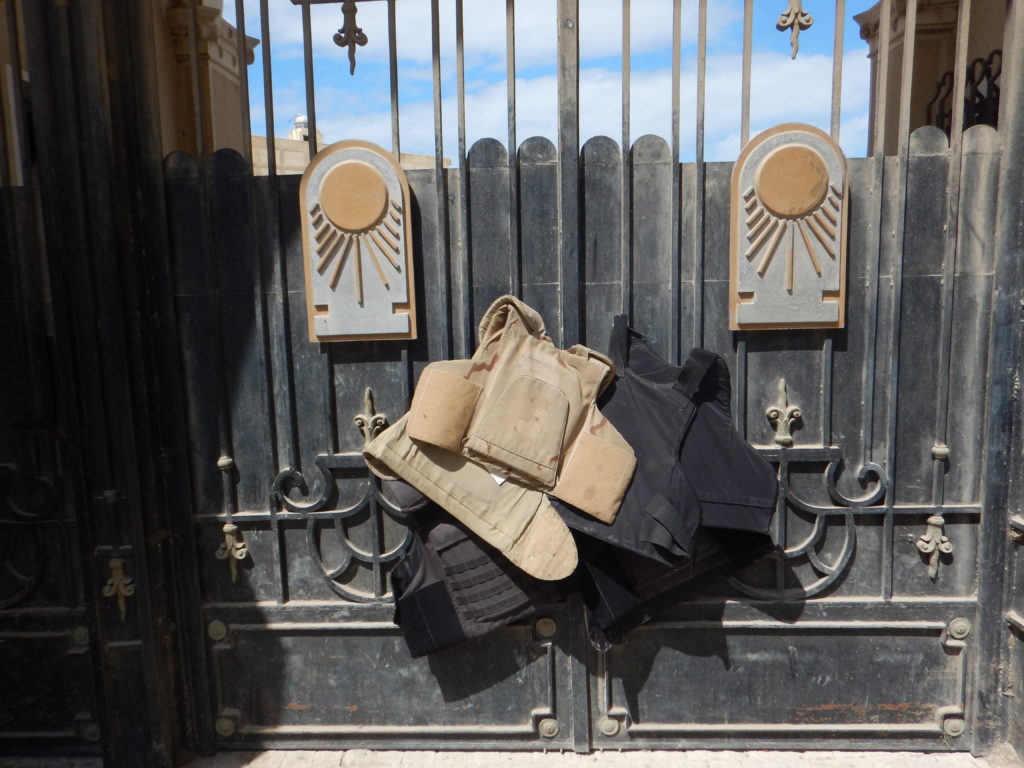
Police bulletproof vests hang on the gate of a tourist attraction in Egypt. Didn’t expect this in Europe until … now.
But just because European cities are gorgeous and fun to walk around in, it’s not Disneyland. You’re just as likely to be pickpocketed on The Spanish Steps in Rome as on the streets of Manhattan. Your chances of being in the wrong place when a bomb goes off are probably about the same as being shark food when you take a swim off the California Coast.
Sign up for STEP
Americans traveling abroad should sign up for the US State Department’s free Smart Traveler Enrollment Program, or STEP. It lets authorities know where you will be, in case something happens and everyone needs to be warned or accounted for. Read this excellent post from The Voyage Report on how to register and sign up here. You should always heed State Department warnings when planning your trip.
The Covid 19 pandemic presented a new threat and new regulations. Therefore, the US government is constantly updating its travel alerts for ALL of Europe and the world. And you don’t want to be sitting around your hotel room waiting for a text from Uncle Sam that it’s ok to go out. Rather than crossing off an entire continent, go boldly — but take steps to minimize your risk.
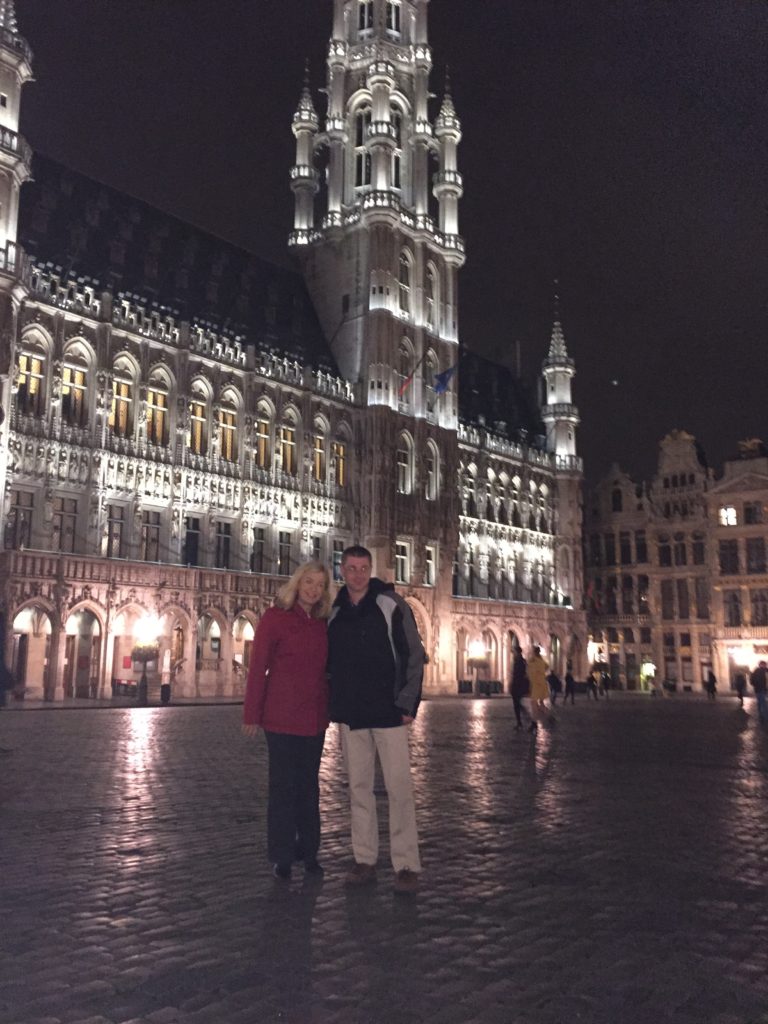
I was constantly asked if I feared for my son’s safety in Brussels.
Learn the Geography
When my son was completing his PhD in Brussels, I was constantly asked if I worried about my son’s safety. Especially by his nervous grandmother who is sure there’s a terrorist around every corner of the EU’s capital city. After all, deadly bombs did go off at the Brussels Airport and in the metro. Attacks in other European cities have been linked to terrorist operatives who were based in Belgium.
However, as a local resident, my son was well aware of the neighborhoods where his appearance might make him a target. He stuck pretty much to the area known as Ixelles, where his university was located. He told me there are not really any “no-go” zones in Brussels. But he also knew the difference between Molenbeek, where police have conducted numerous searches for terrorism suspects, and the similar-sounding Maalbeek. That’s the area near EU government buildings that was targeted by the metro bomb, but generally has been safe since then. When he did venture into Molenbeek, for an opera staged in a tent, he reports the security was “what you might expect to see in Karachi” for a similar event. (Andrew did part of his graduate work in Pakistan, relying on the kindness of a local family who hosted him. And now he’s the author of some brilliant epic historical fantasy books, which you can check out here on Amazon for your vacation reading.)
Expect Security Checks
Allow extra time for the airport-like security at major venues, as I encountered at the famous opera houses in Paris. You’ll get through the line faster if you keep the stuff you are carrying to a minimum. Credit card, phone, some pocket spending money and a pocket sized camera like my Panasonic Lumix if you don’t want to take pictures only with a phone. That’s it. Have a copy of your passport ID page (on paper or stored on your phone) and check the real one in a secure location where you’re staying. (Be aware that not all hotel room safes are really safe.) And, this may seem obvious, but put your camera away when going through security.
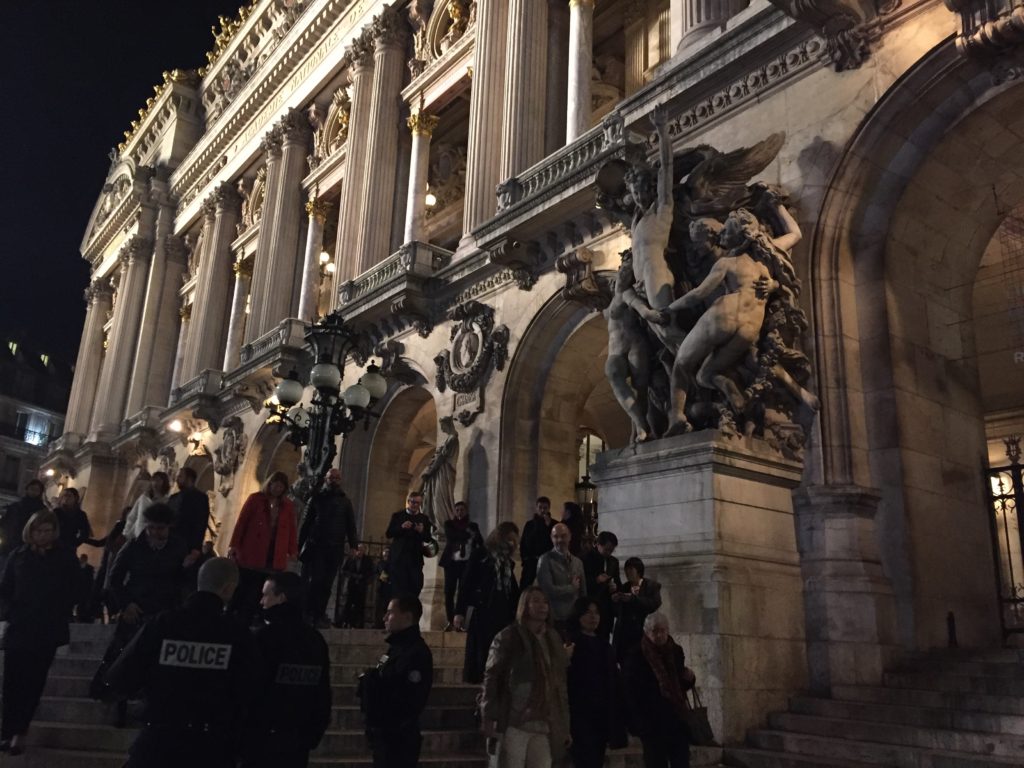
Security is understandably tight at the opera. Arrive early.
Stay alert in “Soft Targets”
The heightened security means that major sights and venues will have plenty of police around. So the bad people have focused increasingly on “soft targets” — places that are highly symbolic and draw crowds. A stroll on the famous Champs Élysées Boulevard in Paris or the London Bridge might put you in the wrong place at the wrong time. That shouldn’t stop you from going. It just means to be on your guard while you are sightseeing for anything that looks or sounds out of place. And if it does, for the love of God, please go AWAY from it and tell someone! Don’t rush in to see what happened.
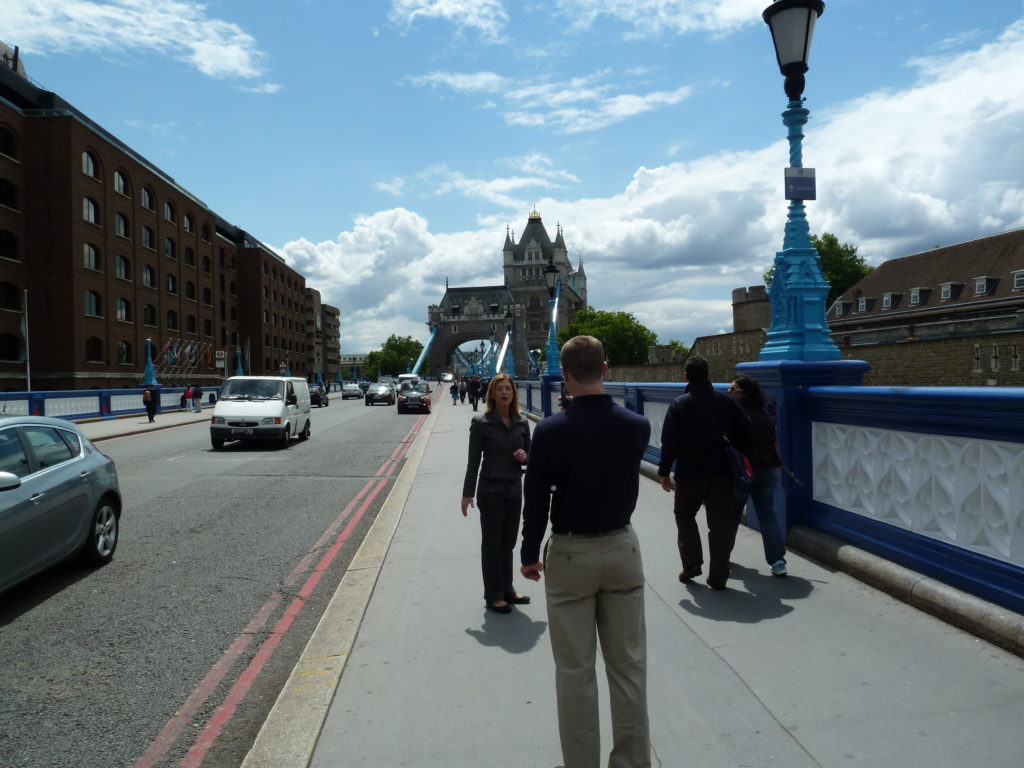
Doing a travel blog standup, in sight of London Bridge.
One of the most disturbing aspects of recent attacks in Manchester, London or Paris is that they hit soft targets that were NOT tourist attractions, like a local concert arena or a popular pub or cafe. City-dwellers in Europe tend to live in tiny apartments and spend time relaxing in shared public spaces. And the attackers well know how much fear they inspire by targeting that way of life. Not much you can do about that, except to take exactly the same risk that all of the local residents take when they head out on the town for big events or a night of fun. Just stay alert. Think you’re safer by staying back in the good old USA? Remember what happened at the Boston Marathon and at the Pulse nightclub in Orlando.
Now that you’re prepared to stay safe around town, why not save little money on your sightseeing with the London Pass? Click on this link to buy discounted admissions to London’s top attractions, inclusive bus and tube rides, and best of all — skip the lines! Additional tip: Plan ahead so they can mail your passes to your home address and you won’t waste precious vacation time picking them up. Save money and skip the lines with sightseeing/transport passes for other major cities including the Paris Pass, the Roma/Vatican Pass and the Dublin Pass. I have personally used these passes for my whole family and can testify to huge savings of money and time.
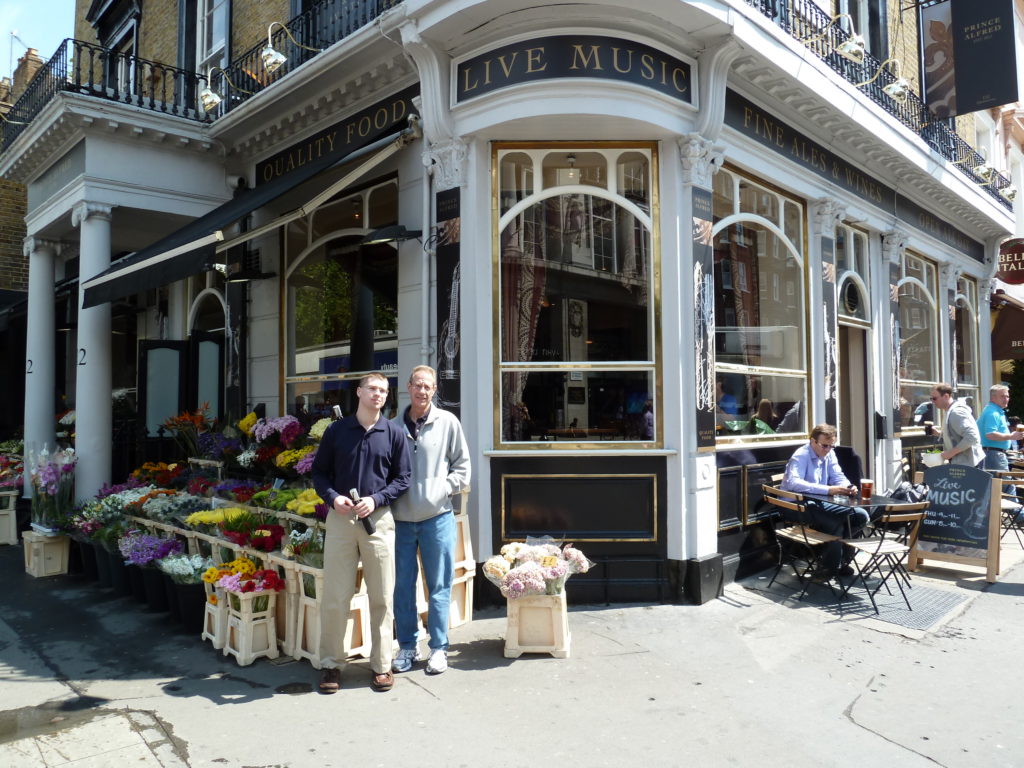
Yes, pubs are soft targets, but also your chance to talk with local residents about safety concerns.
While I’m on the subject of soft targets, don’t linger in parts of an airport that are not secure. By that I mean the ticketing area and the baggage claim. Just take care of business and move on as quickly as possible. I still shudder when I think of the time I waited an hour for a hotel shuttle bus outside the international arrivals area Istanbul’s airport terminal, which was later targeted. Pay a little extra for a taxi and get the heck out of there!
Consider Central and Eastern Europe
I try to avoid bringing politics into this, but the fact is that some countries have more risk than others. If it’s your first trip to Europe, you are probably focused on the “Big 3” of London, Paris and Rome. You might have just as good a trip in Krakow, Prague or Budapest. Slovenia has been rated as one of the world’s safest countries. You’ll get everything you went to Europe for: history, culture and breathtaking sights. Memorable food and wine. Without commenting on the politics involved, I think my son the EU scholar has a point when he says, “Eastern Europe is the new Western Europe.” Countries like Croatia, Slovakia, Serbia, Romania and Montenegro are eager to develop their tourist trade. You’ll feel welcome here.
That said, the former Communist countries aren’t Disneyland, either. As in any country, you have to keep your street smarts about you to avoid petty crime and major scams like fake ATMs that are only there to collect your personal information without spitting out any money. Do not use any bank machines that are not connected to the inside of an actual bank.
Share Information
We all share the same Living Room. Do you have a travel safety tip you would like to share? Comment below. Or, like @strangersinthelivingroom to comment on Facebook, and sign up for the occasional email when there is a new post here on the blog.
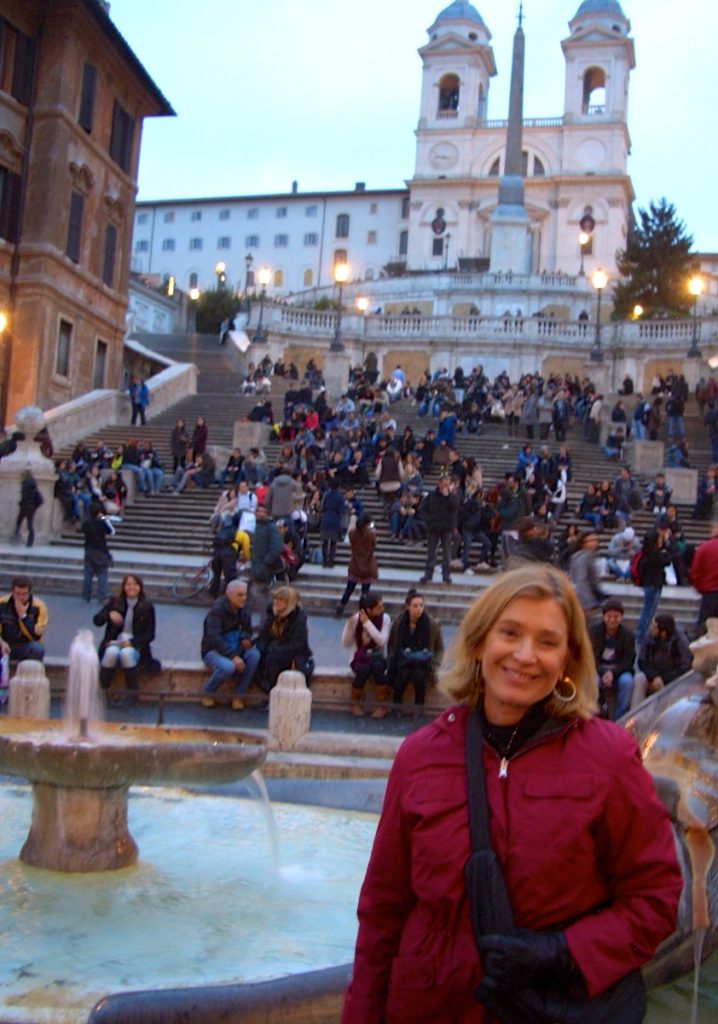
Stay alert in busy places like Rome’s Spanish steps for petty crime like pickpocketing.

